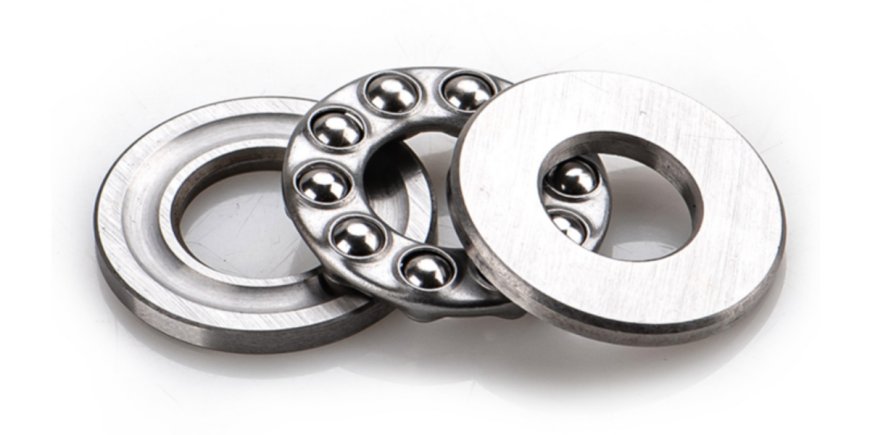Choosing the Right Thrust Ball Bearings Supplier: A Comprehensive Guide
Discover essential tips for choosing a reliable thrust ball bearings supplier, focusing on quality, range, customization, and support for optimal performance.

Introduction
In the world of mechanical engineering and industrial applications, thrust ball bearings play a crucial role in supporting axial loads. These bearings are designed to handle forces in a single direction, making them essential in various machinery and equipment. Selecting the right supplier for thrust ball bearings can significantly impact the performance and longevity of your applications. This blog will guide you through the key considerations for choosing a reliable thrust ball bearings supplier, helping you make an informed decision.
Understanding Thrust Ball Bearings
Thrust ball bearings are specialized components designed to handle axial loads, which are forces that act parallel to the shaft of a rotating machine. They consist of balls arranged between two rings, with one ring being fixed and the other rotating. This configuration allows the bearing to support high axial loads while minimizing friction and wear. Thrust ball bearings are commonly used in automotive, aerospace, and industrial applications where precise axial load support is essential.
Key Factors to Consider When Choosing a Supplier
- Quality Assurance
The quality of thrust ball bearings is paramount to ensure reliable performance and longevity. A reputable supplier should provide high-quality bearings that meet industry standards and specifications. Look for suppliers who offer certifications and quality assurance documentation, such as ISO 9001, to verify the reliability and durability of their products. - Range of Products
A reliable thrust ball bearings supplier should offer a comprehensive range of products to meet various application needs. This includes different sizes, load capacities, and configurations of thrust ball bearings. Having a wide selection ensures that you can find the right bearings for your specific requirements and reduces the need for multiple suppliers. - Customization Options
In some cases, standard thrust ball bearings may not meet the specific needs of your application. A good supplier should offer customization options to tailor the bearings to your unique requirements. This could include modifications to dimensions, materials, or load capacities. Customization ensures that the bearings will perform optimally in your specific application. - Technical Support
Choosing a supplier who provides excellent technical support can be a significant advantage. Technical support includes assistance with product selection, application guidance, and troubleshooting. A knowledgeable supplier can help you understand the best thrust ball bearings for your needs and provide solutions for any issues that may arise during installation or operation. - Delivery and Lead Times
Timely delivery of thrust ball bearings is crucial to avoid disruptions in your operations. Evaluate the supplier's delivery capabilities and lead times to ensure that they can meet your deadlines. A reliable supplier should offer efficient logistics and a track record of on-time deliveries. - Cost and Value
While cost is an important factor, it should not be the sole criterion for choosing a supplier. Consider the overall value that the supplier offers, including the quality of the bearings, technical support, and customer service. Sometimes, a higher cost may be justified by superior quality and added benefits. - Reputation and Reviews
Research the supplier's reputation and read customer reviews to gauge their reliability and performance. Positive feedback from other customers can provide insights into the supplier's professionalism, product quality, and service levels. Look for testimonials and case studies that highlight the supplier's strengths and successes.
Conclusion
Selecting the right thrust ball bearings supplier is crucial for ensuring the performance and reliability of your machinery and equipment. By considering factors such as quality assurance, product range, customization options, technical support, delivery times, cost, and reputation, you can make an informed decision that meets your needs. Investing time in choosing a reputable supplier will contribute to the efficiency and longevity of your applications, ultimately benefiting your operations.
What's Your Reaction?
 Like
0
Like
0
 Dislike
0
Dislike
0
 Love
0
Love
0
 Funny
0
Funny
0
 Angry
0
Angry
0
 Sad
0
Sad
0
 Wow
0
Wow
0



















































